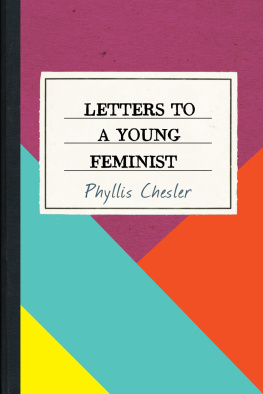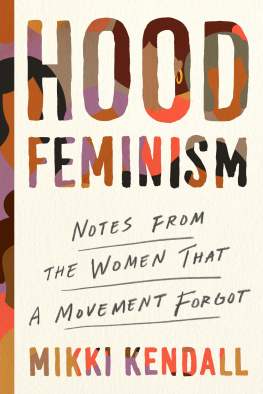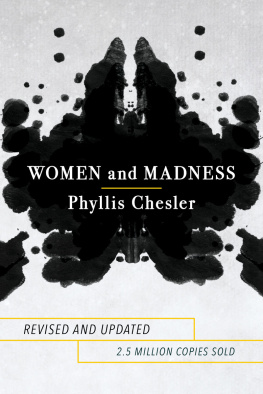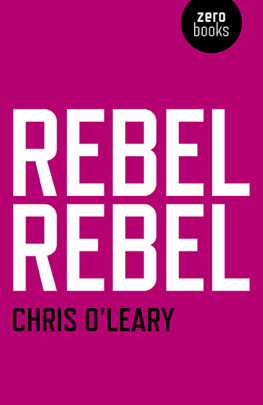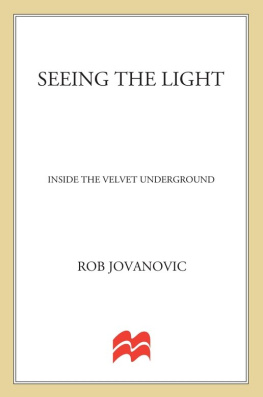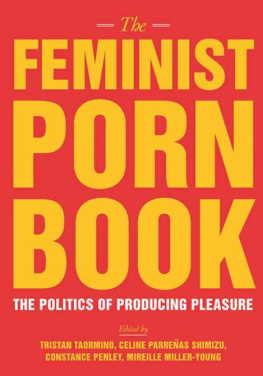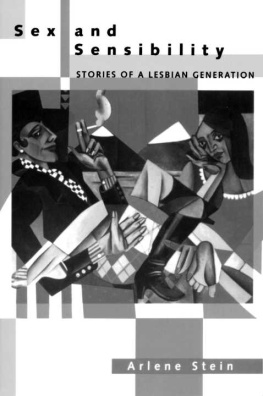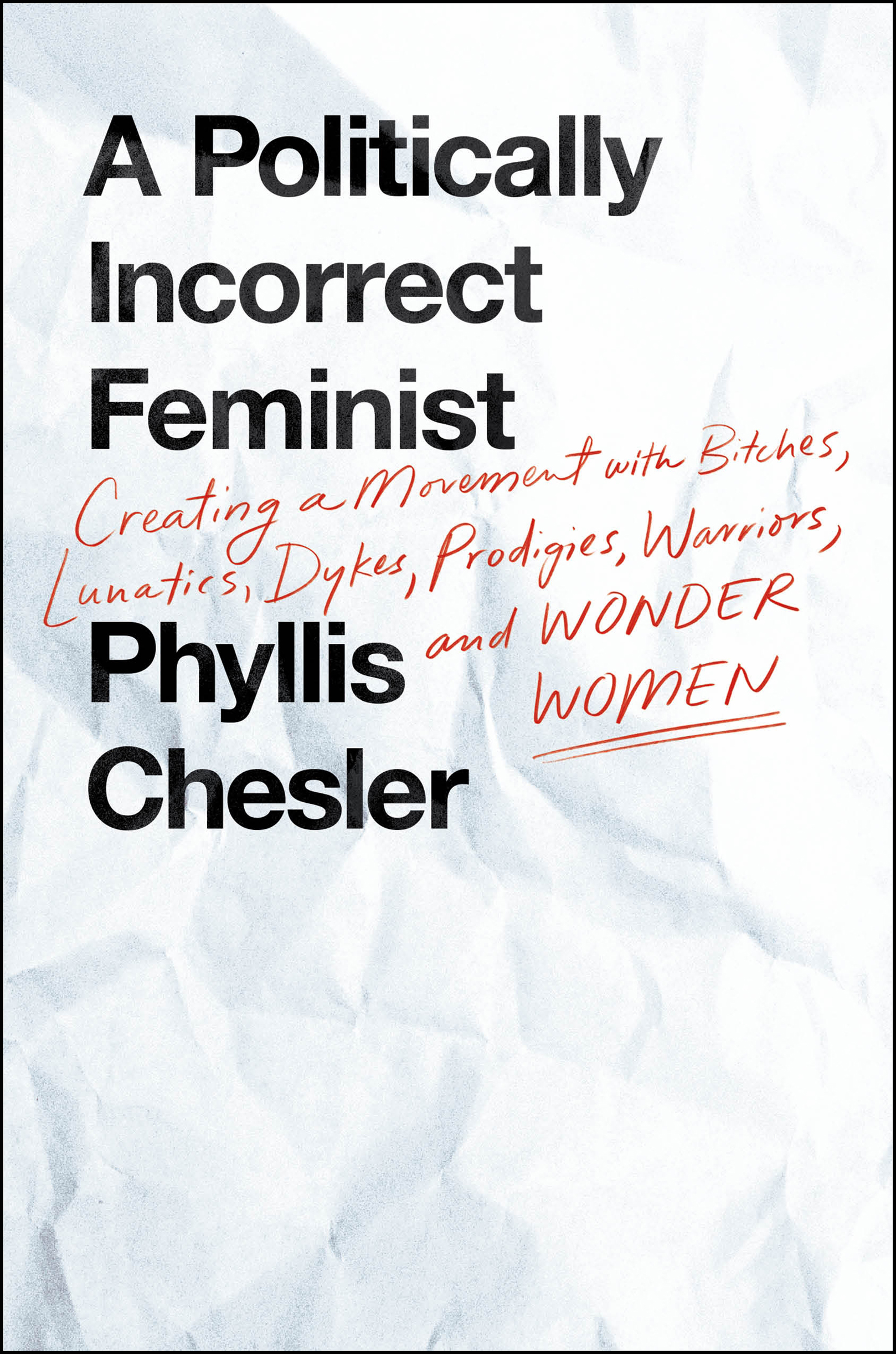Contents
Guide
Pagebreaks of the print version

The author and publisher have provided this e-book to you for your personal use only. You may not make this e-book publicly available in any way. Copyright infringement is against the law. If you believe the copy of this e-book you are reading infringes on the authors copyright, please notify the publisher at: us.macmillanusa.com/piracy.
This book is dedicated to our unknown soldiers whose mighty deeds were either disappeared or never documented; those who saved womens lives while risking their own; and those who served the cause of womens freedom with humility and dedicationand, in so doing, braved scorn daily.
This book is dedicated to our women of ideas, our wordsmiths, our artistes of activism, and to every feminist of my generation who fought for womens rights.
This book is also dedicated to the men who helped us.
The author is especially grateful to those who were kind to strong and fiery women.
Ive written many books but never before have I written a book in this way. The chapters tumbled out all at once; I could barely keep up with them. Stories that belonged at the end of the book demanded my attention even as I was writing about something that took place much earlier.
This book happened just like second-wave feminism did: all at once.
The world had never seen anything like us, and wed never seen anything like each other. Wewho only yesterday had been viewed as cunts, whores, dykes, bitches, witches, and madwomen; we who had been second- and third-class citizenshad suddenly become players in history. The world would never be the same, and neither would we.
* * *
I was born on October 1, 1940, in Borough Park, Brooklyn, exactly ten months after my parents were married.
Like all firstborn Orthodox Jewish girls, I was supposed to be a boy.
In many ways I behaved like a boy. I refused to help my mother with the dishes, I played punchball and stickball and, soon enough, engaged in other kinds of games with boys. Although I was known as a brain, I was also an early-blooming outlaw. I ran away from home when I was five years old and got a job sweeping the floor in the barbershop across the street. The police found me and brought me home.
Only boys, especially boys who wrote, did things like that. They hit the road, walked across America, drank, took drugs, had sexlots of sexled expatriate lives, joined the Navy. Nice Jewish girlsnice American girlswere not supposed to do such things. But some of us did.
* * *
Im a quintessential Americanthe daughter and granddaughter of immigrants.
Im a Jewish American, heir to a treasured tradition of learning that has survived countless massacres, exiles, and genocides.
Im a child of the working poor, a daughter of earth.
Americaand the moment in history at which I was bornmeant that I received a first-rate education. Such luckand hard workmay explain how I became a professor of psychology and womens studies, the author of seventeen books, and a feminist leader.
On my fathers side, Im a first-generation American.
I know that my father, Leon, was born in 1912 in Ukraine. He was a child survivor of World War I, the Russian Revolution, a civil war, and pogroms. He never once mentioned any of this. Nothing this important was ever openly discussed. How can I ever piece together his story?
My father named me after the mother he barely knewmy Yiddish name is Perel (Pearl)a woman hacked to death by Cossacks in her tea shop when my father was only an infant.
My mother was the only member of her family who was born in Americaher parents and sisters were born in Poland.
My grandparents never learned to speak English; my mother remained their translator and only caregiver until they died.
* * *
I wrote the first draft of this book as if it were a mural. Every day you could find me perched on my stool as I checked memory against diaries, correspondence, scrapbooks. I could spend weeks reworking a small detail in one corner of the canvas.
I was everywhere at the same time, all over my feminist life: writing about patriarchy in Kabul in 1961; attending a National Organization for Women meeting in 1967; cofounding the Association for Women in Psychology in 1969; demanding a million dollars in reparations for women from the American Psychological Association and pioneering one of the first womens studies courses in 1970; delivering a keynote speech at the first radical feminist conference on rape in 1971; publishing Women and Madness in 1972.
We pioneers emerged between 1963 and 1973 and took ideas seriously. Some of us were geniuses. Many of us were dangerously intelligent, and most of us were radical thinkers. We did not all think alike. We were champion hairsplitters and disagreed with each other with searing passion.
In our midst was the usual assortment of scoundrels, sadists, bullies, con artists, liars, loners, and incompetents, not to mention the high-functioning psychopaths, schizophrenics, manic depressives, and suicide artists.
I loved them all.
I even began to love myself.
Without a feminist movement I would have had a career but not necessarily a calling; I still would have written my books, but they would have had much smaller audiences and far less impact.
* * *
We knew nothingabsolutely nothingabout our American and European feminist foremothers, even less about non-Western women, including feminists. In Women of Ideas and What Men Have Done to Them (1982), the divine Australian scholar Dale Spender documented how the most remarkable feminist work had been systematically disappeared again and again.
Few of us knew that feminists before us had battled for womens rights in the Western world in the eighteenth, nineteenth, and twentieth centuries. Feminists had opposed sex slavery, wage slavery, marriage, organized religion, and the absence of womens legal, economic, educational, and political rights. Their writings were brilliant and fierybut unknown to each successive generation.
Each generation of feminists had to reinvent the wheel.
Within ten to fifteen years, books by the best minds of my feminist generation were out of print. Within fifteen to twenty years, university professors and their students were largely unfamiliar with most of our work. They took for granted, or regarded as hopelessly old-fashioned, the grueling lawsuits we had brought and our brave activismif, indeed, they remembered what we had done at all.
In our own lifetimes we became our suffragist grandmothers and shared their dusty, forgotten fate.
But I remember us as we were, and how we will always be: politically and sexually daring, vivid, vivacious, incredibly vibrant.
Some feminists whose ideas inspired me the most may be unknown to you; this is precisely Dale Spenders point.
I hope that what Ive written here will draw you closer to their work, that youll seek it out and come to know it.
Ive been close to most of our feminist visionaries and icons. What Ive written may make you laugh, but it may also shock you. Our feminist pioneers were only mortal; they were as flawed as anyone elsesave in their work, which was both extraordinary and overinflated.
* * *
First, we formed a civil rights organization for women: the National Organization for Women, which brought class-action lawsuits and demonstrated against womens legal, reproductive, political, and economic inequality. For the second time in the twentieth century, women (and some men) crusaded for womens rights, this time by focusing on hundreds of issues, not only one issue, the vote.


